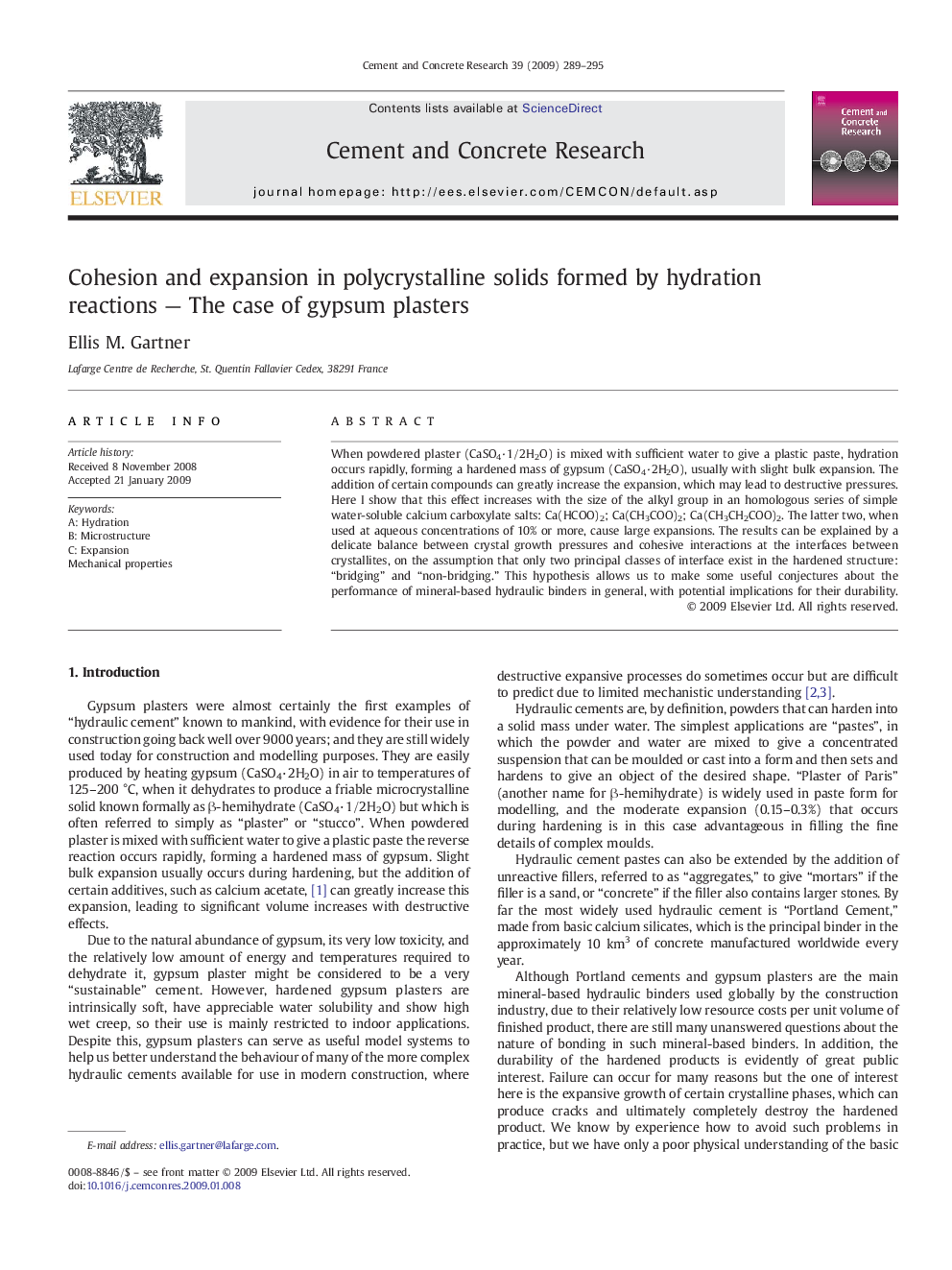| Article ID | Journal | Published Year | Pages | File Type |
|---|---|---|---|---|
| 1457222 | Cement and Concrete Research | 2009 | 7 Pages |
When powdered plaster (CaSO4·1/2H2O) is mixed with sufficient water to give a plastic paste, hydration occurs rapidly, forming a hardened mass of gypsum (CaSO4·2H2O), usually with slight bulk expansion. The addition of certain compounds can greatly increase the expansion, which may lead to destructive pressures. Here I show that this effect increases with the size of the alkyl group in an homologous series of simple water-soluble calcium carboxylate salts: Ca(HCOO)2; Ca(CH3COO)2; Ca(CH3CH2COO)2. The latter two, when used at aqueous concentrations of 10% or more, cause large expansions. The results can be explained by a delicate balance between crystal growth pressures and cohesive interactions at the interfaces between crystallites, on the assumption that only two principal classes of interface exist in the hardened structure: “bridging” and “non-bridging.” This hypothesis allows us to make some useful conjectures about the performance of mineral-based hydraulic binders in general, with potential implications for their durability.
